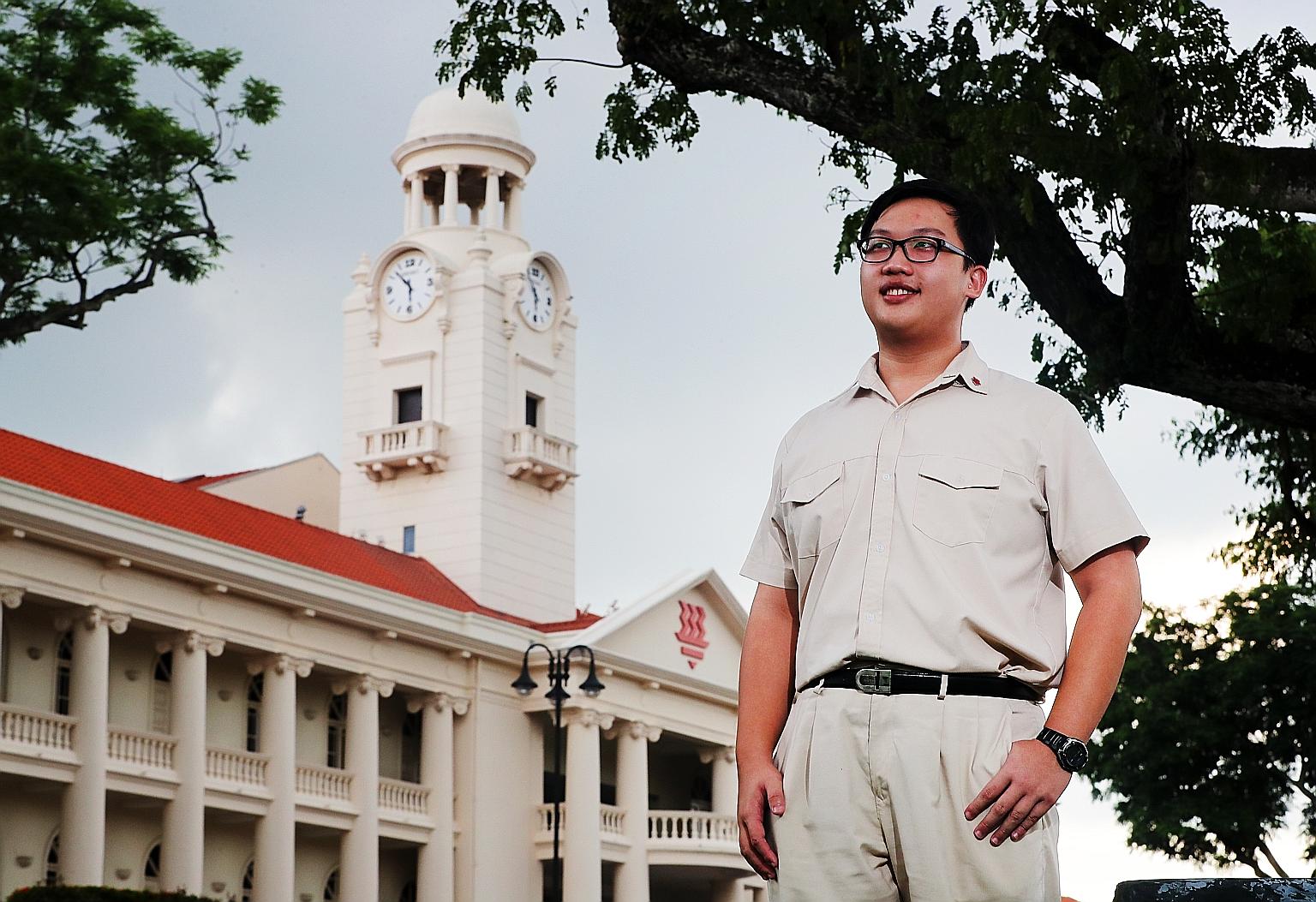Premier schools taking students from wider pool
Sign up now: Get tips on how to help your child succeed

HCI student Thames Teo, from Kuo Chuan Presbyterian Primary, was inspired by a President's Scholar, who was from his alma mater.
ST PHOTO: KELVIN CHNG
Besides Raffles Institution, other premier schools said they have stepped up efforts to engage primary schools, from holding roadshows for pupils and their parents to meeting primary school leaders.
The Sunday Times spoke to five top schools - Raffles Girls' School (RGS), Hwa Chong Institution (HCI), Nanyang Girls' High School, Anglo-Chinese School (Independent) and Methodist Girls' School.
Some said their students now come from a wider pool of primary schools, although most declined to share figures on their socio-economic make-up.
ACS (I) said its Secondary 1 cohort comes from 86 primary schools, up from 71 in 2016.
Nanyang Girls' High's Sec 1 students come from 102 primary schools, up from 80 to 85 previously.
And HCI's Sec 1 cohort comes from 134 primary schools, 40 per cent of which are government schools.
Its principal Pang Choon How said some parents may have reservations about sending their children to the school because they think they cannot afford the financial cost of school programmes.
To dispel these fears, his publicity team holds talks for parents and pupils in 50 primary schools every year, to share about the school culture and how it can provide support. HCI is also reaching out to newer primary schools.
About 15 per cent of HCI students are receiving the Independent School Bursary from the Ministry of Education. In addition to that, the school gives out $50,000 yearly in subsidies to needy students for expenses such as overseas trips and boarding programmes.
RGS principal Poh Mun See said she shares with primary school leaders about her school's programmes, support structures and scholarships, for instance, so they can advise pupils to apply to RGS.
The schools said they are also mindful that their students need to mix with peers from all walks of life. HCI this year invited students from other schools in the west to join its boarding programme and entrepreneurship and leadership activities.
Mr Pang, an old boy of HCI, added: "Besides finances, schools need to help students assimilate better so they don't feel short-changed in independent schools."
HCI student Thames Teo said he was inspired after a talk by President's Scholar Timothy Yap, who had attended the school and was also from his alma mater, Kuo Chuan Presbyterian Primary.
"I dreamt of following in his footsteps... I thought if someone could come from my primary school and go to Hwa Chong and emerge as President's Scholar, I thought maybe I could give it a shot," said the 17-year-old. His father is a chef and mother is an operations manager.
Despite being on financial assistance, he does not feel different from his schoolmates. Thanks to school subsidies, he has gone on two exchange programmes in Brisbane and Guangdong.
"I feel very grateful and I don't feel left out in any way," said Thames, who hopes to pursue university studies in Britain.
Correction note: An earlier version of this article misspelt the name of RGS principal Poh Mun See. We are sorry for the error.


